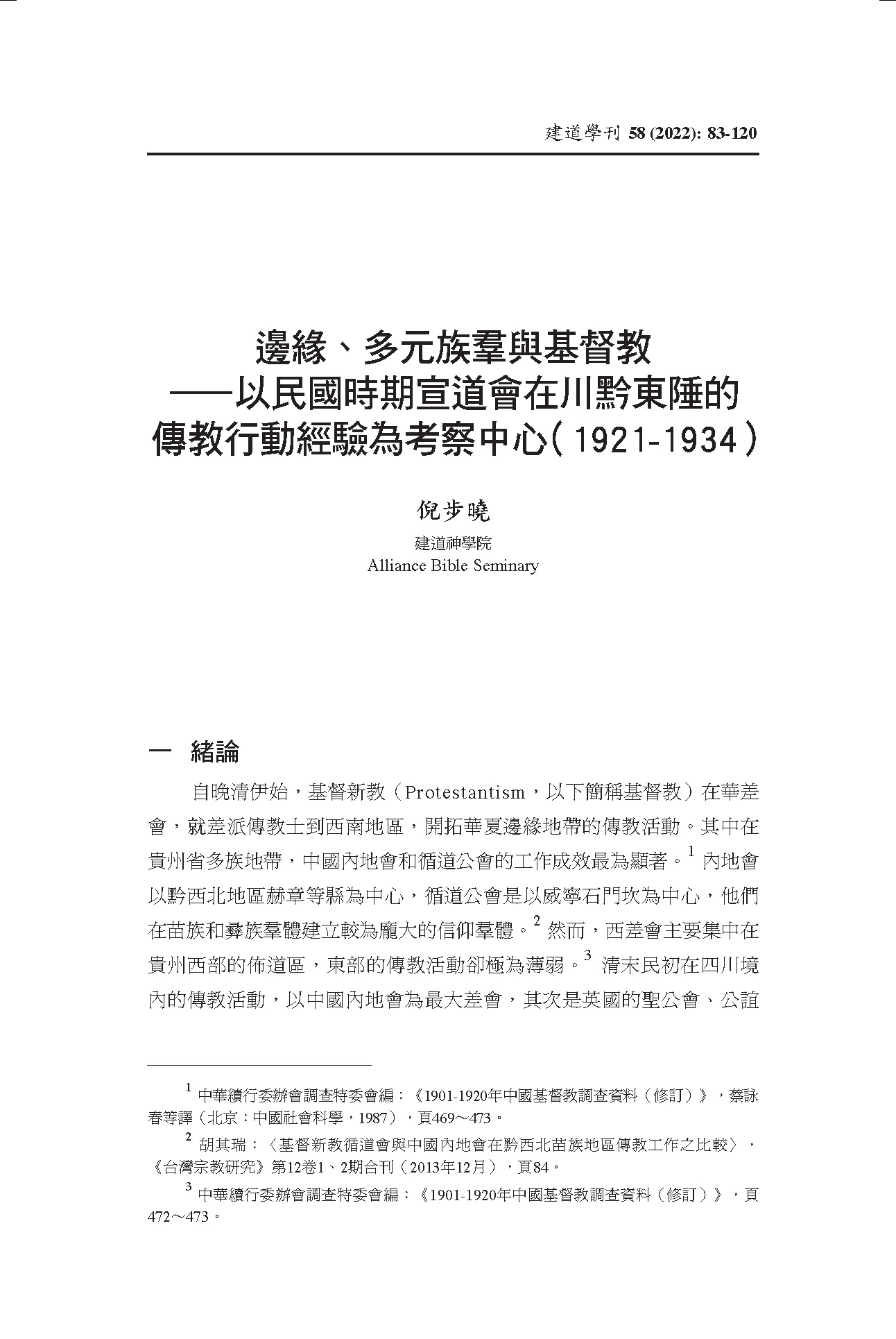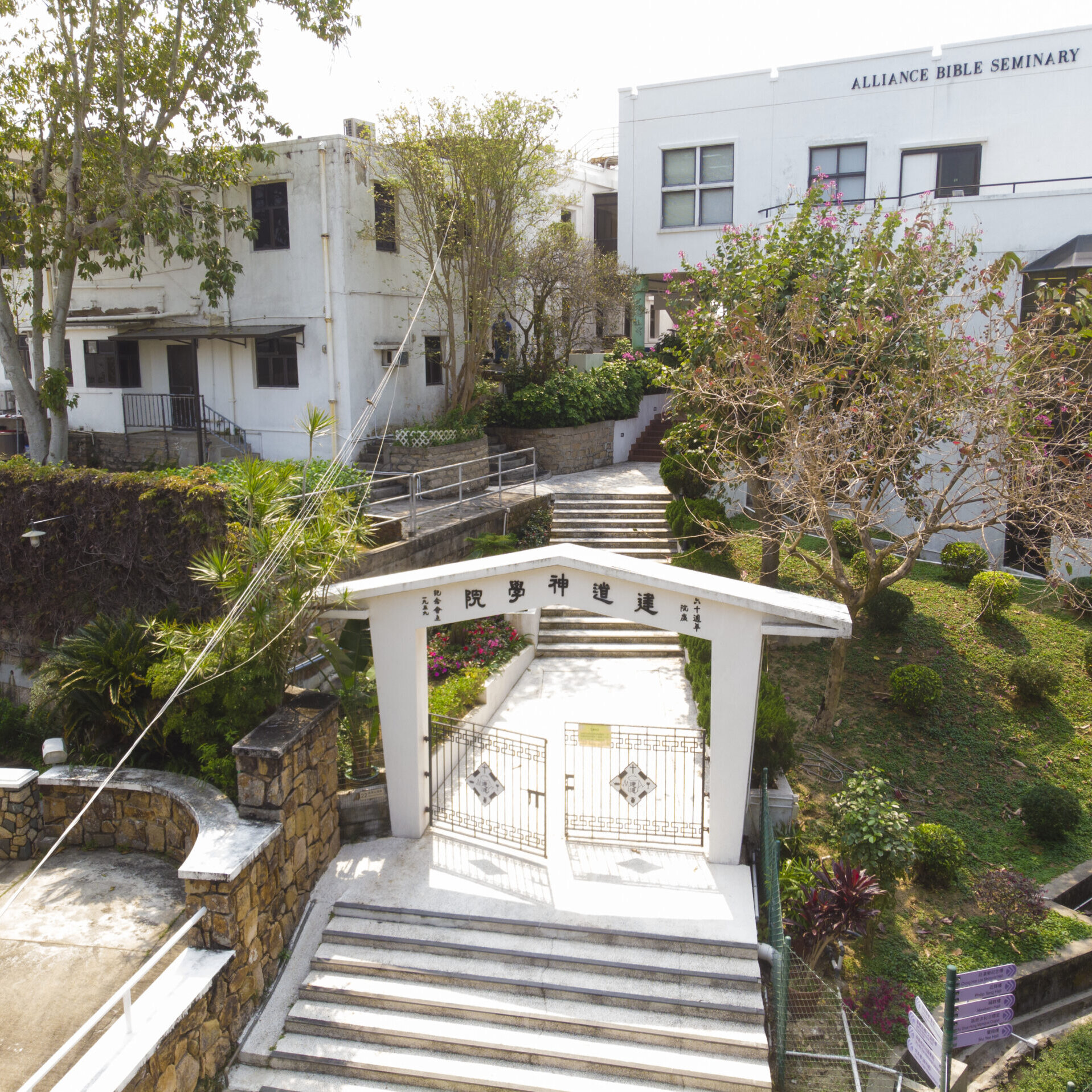邊緣、多元族羣與基督—以民國時期宣道會在川黔東陲的傳教行動經驗為考察中心(1921-1934) / 倪步曉
倪步曉
撮要
四川東南與貴州東北部的交界是位於偏遠山區,由二十世紀二十年代基督教宣道會首次派遣傳教士來到這裏,將基督教信仰傳給漢、苗等多元聚居族羣, 並且常駐開展傳教活動。宣道會在十餘年間先後建立以松桃、秀山、彭水和龍潭為傳教據點,範圍涉及川黔東部比鄰的縣區。本文通過這一段被忽略的基督教在華傳播史,梳理宣道會採取的福音佈道路線,表明其在川黔東部的邊緣性特點: 注重信徒改宗的身分認同、吸鴉片者的宗教治癒以及在苗蠻的福音開墾。由此進一步說明宣道會服務川黔的「邊緣」屬性,在不得保障的社會機制中。其中最為關鍵的是,傳教士經歷被搶劫、綁架時,所採取的應對措施,兌現了「未得之地」的傳教信念。故此,宣道會在中國西南內地的傳教中扮演了不可忽視的角色。
ABSTRACT
The border between southeast Sichuan and northeast Guizhou is located in a remote mountainous area. In the 1920s, the Christian and Missionary Alliance first sent missionaries to this area to spread the Christian belief to the Han, Miao and other multi-ethnic groups, and to carry out permanent Missionary activities. For more than ten years, the Christian and Missionary Alliance established its missionary bases in Songtao, Xiushan, Pengshui and Longtan, covering neighboring counties in the eastern part of Sichuan and Guizhou. Based on this neglected history of the spread of Christianity in China, this paper analyzes the evangelical preaching route adopted by the Christian and Missionary Alliance. The phenomenon that the Christian and Missionary Alliance pays attention to cultivating local missionaries shows its marginal characteristics in eastern Sichuan and Guizhou: Focus on the identity identification of converts, religious healing for opiates and preaching the Gospel in Hmong. This further shows the “marginal” attribute of the Christian and Missionary Alliance serving Sichuan and Guizhou in a social mechanism without protecting. One of the most critical is that when the missionaries were robbed or kidnapped, the measures they took to deal with fulfilled the missionary belief of ” Unengaged People Groups”. Therefore, missionary society played an important role in the missionary work in southwest China.
原載於《建道學刊》58期(2022年7月),頁 83-120。
作者簡介
倪步曉
神學研究部助理教授
基督教與中國文化研究中心主任
最新文章
新手牧者研究計劃(三):新手牧者的身心靈狀態 / 盧慧儀
2025 年 11 月 19 日
【教牧退休】好好理財 退而不憂 / 林本利
2025 年 10 月 1 日
【教牧退休】生前身後的管理:平安三寶 / 陸文慧
2025 年 10 月 1 日
編輯精選
[電子書]困境與抉擇:「建道研究中心30週年誌慶」跨學科研討會論文集/廖炳堂、倪步曉主編
2025 年 1 月 2 日
從梧州到長洲:建道神學院125年的挑戰與恩典 / 陳智衡
2023 年 10 月 1 日
微小教會的見證/高銘謙
2023 年 6 月 1 日








